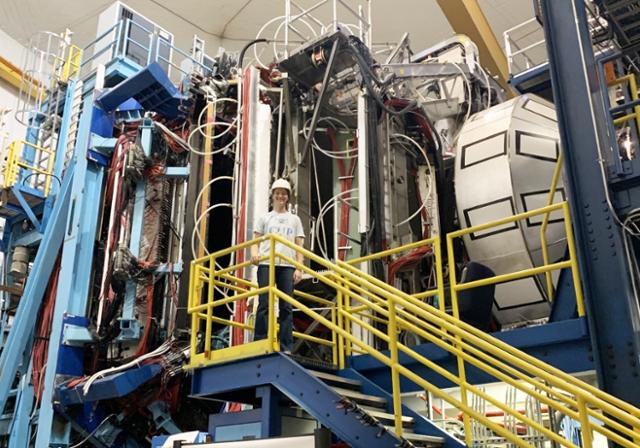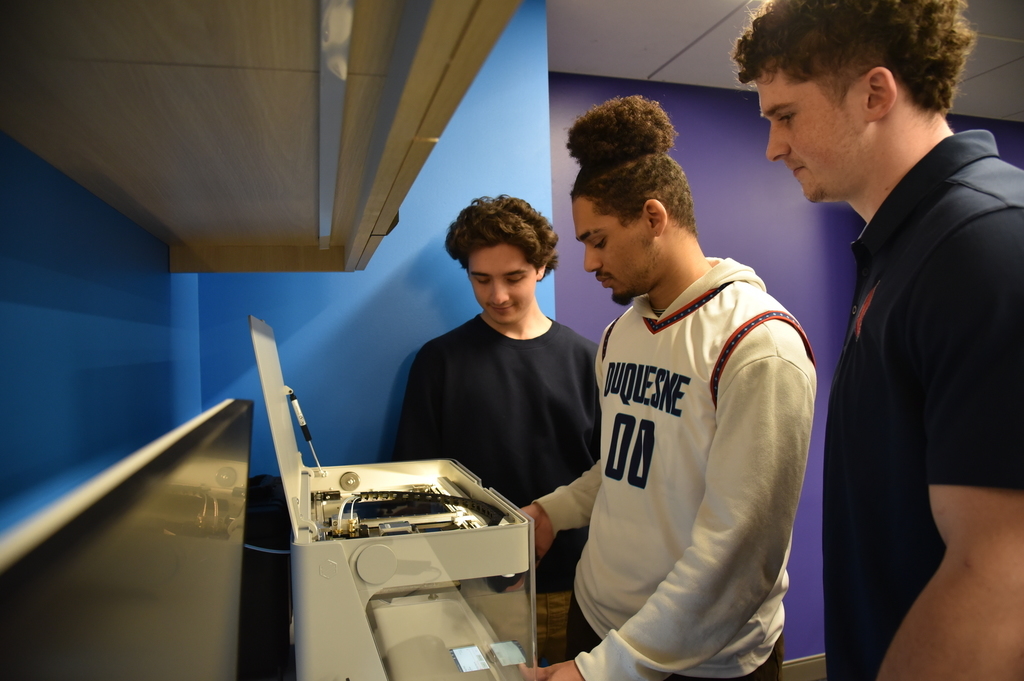Mechanical Engineering
Duquesne University's Mechanical Engineering Program offers a comprehensive, state-of-the-art education tailored for students aspiring to excel in mechanical engineering. Here's an overview of what our program has to offer you:
- Building a Strong Foundation: We provide you with a robust grounding in all the fundamental subject areas (e.g. physics, programming and calculus) to ensure your success in more advanced mechanical engineering coursework.
- Exploring a Diverse Curriculum: Our curriculum is designed to expose you to a wide range of mechanical engineering topics- from thermal sciences to robotics- to equip you for whatever career path you choose to pursue.
- Research Opportunities: Our program guarantees that all students will have the opportunity to engage in cutting-edge research projects mentored by our expert faculty members, giving you invaluable hands-on experience and strong reference letters for future jobs and graduate programs.
- Forging Industry Connections: Duquesne's location in Pittsburgh, a tech and engineering hub, opens doors to incredible internship and job opportunities. Our career development services and internship opportunities are designed to facilitate a smooth transition into the workforce.
- Nurturing Professional Development: Our program places a strong emphasis on your professional and personal growth through regular mentorship meetings. Duquesne’s well-rounded curriculum ensures that students gain essential professional skills and a strong sense of ethics in addition to technical grounding. This ensures that you're not just an engineer but a well-rounded one, capable of excelling in diverse work environments.
- Fostering a Supportive Community: At Duquesne, you'll become part of a tight-knit, diverse and supportive community. Small class sizes and a collaborative learning environment will enable you to form strong relationships with your professors and peers, enhancing your overall educational experience. Our department also places a high value on diversity and inclusion so that all students feel supported and safe in our program.
Program Information
Duquesne University's Mechanical Engineering Program offers a comprehensive and cutting-edge education for students pursuing a career in mechanical engineering. Located in Pittsburgh, Pennsylvania, the program is known for its commitment to academic excellence, hands-on learning, and a strong focus on developing well-rounded engineers.
Program Type
Major
Degree
Bachelor's
Duration
4-year
Required Credit Hours
127
Contact me to help you get started on your engineering path today! The School of Science and Engineering is a vibrant center for discoveries that benefit
society, featuring eight departments, numerous research centers, abundant undergraduate
research opportunities, and a rapidly growing funded-research budget. Our strong partnerships
in Pittsburgh and around the world further enhance our collaborative initiatives. You can explore your interests through approximately 14 student organizations, which
are open to science and engineering majors. These options include joining the American
Chemical Society, the Biomedical Engineering Society, the Society of Women Engineers,
and the Multicultural STEM Group, among others, to connect with like-minded peers
and pursue your passions. This is the curriculum for the mechanical engineering program, encompassing 127 credits.
Immerse yourself in practical experiences, collaborative research, and real-world
projects, all designed to equip you with the expertise to make a substantial impact
in the field of engineering. Fall Semester (16 credits)I Can Help You Reach Your Bigger Goals!
Tiffany Kells

From The Chair
Featured content

Research Opportunities

Student Organizations
Learning Outcomes
Curriculum
Spring Semester (17 credits)
Spring Semester (16 credits)
Spring Semester (17 credits)
Spring Semester (15 credits)



